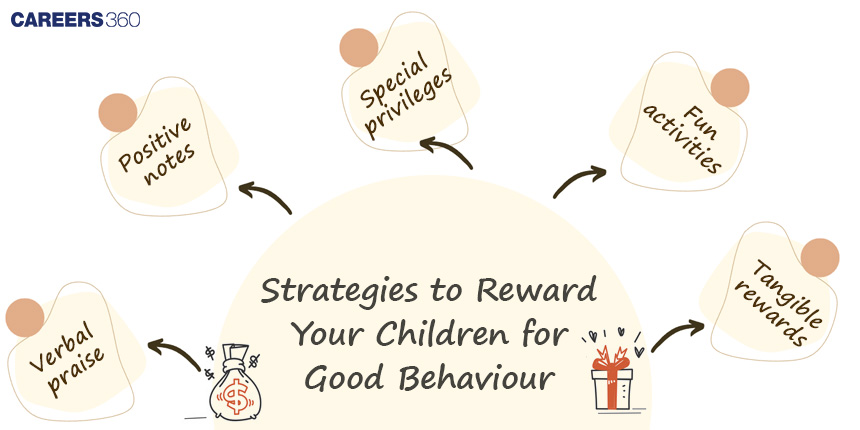Why Bribing Your Way To Get Chores Done Or Following Through Responsibilities Is Not Ideal
Managing a child's behaviour is a crucial aspect of parenting, and it requires a delicate balance of discipline, communication, and encouragement. As children grow, they will inevitably test boundaries and push limits, which can be challenging for parents to navigate. One common approach to managing a child's behaviour is through the use of rewards and incentives. However, understanding the difference between rewarding and bribing is essential for effective behaviour management in children. It's important to distinguish between rewarding a child and bribing them, as there is a significant difference between the two. This article will bring to light the differences between these two strategies and why rewarding is more effective in the long run.

Diving Deep into Bribes
The goal of a bribe is to manipulate a child into doing something they wouldn't normally do, which can undermine their sense of intrinsic motivation and self-discipline.
Bribing is a common strategy used by some parents when trying to manage a child's behaviour. Bribing involves offering a reward or incentive in exchange for specific behaviour. While it may seem like a quick fix to get the child to comply, using bribes can have negative consequences on a child's development and behaviour.
One of the main issues with bribing is that it can create an unhealthy dynamic between parent and child. Instead of fostering a sense of mutual respect and cooperation, bribing can teach children that they only need to follow rules or expectations if there is a reward involved. This can erode a child's intrinsic motivation and sense of responsibility, which can hinder their long-term development.
Also Read | A Letter To My Child Who Scored Average Marks
Additionally, bribing can lead to a situation where children feel entitled to rewards, even if they haven't earned them. This can create a sense of expectation and entitlement that can be challenging to overcome in the long run. It can also lead to children engaging in manipulative behaviour, such as trying to negotiate for a bigger reward or threatening to misbehave if they don't get what they want. This strategy can backfire and can have long-term negative effects on their thoughts, behaviours, and interactions.
Understanding the Reward System
The goal of a reward is to reinforce positive behaviour and encourage children to continue behaving in the same way.
Rewards are a common strategy used by many parents when trying to manage a child's behaviour. Rewards involve offering positive reinforcement or incentives for specific behaviour that parents want to encourage. Rewards can be an effective way to reinforce good behaviour, build positive relationships, and encourage a child's sense of responsibility and intrinsic motivation.
One of the benefits of using rewards is that they can help children associate positive feelings with desirable behaviour. For example, parents can use rewards to encourage children to complete their chores or homework. When a child successfully completes a task, they can be rewarded with something they enjoy, such as extra screen time or a small treat. This can help children understand that good behaviour leads to positive outcomes, which can encourage them to continue behaving in the same way.
Also Read | How To Identify, Prevent, And Fix Parent Burnout?
Another benefit of rewards is that they can help build positive relationships between parents and children. When parents use rewards to acknowledge and celebrate their child's successes, it can help build a sense of trust and connection between them. This can lead to a more cooperative and collaborative relationship, which can be helpful in managing a child's behaviour in the long term.
However, it's important for parents to use rewards effectively and to avoid relying on them too heavily. Overusing rewards can create a sense of expectation and entitlement, which can undermine a child's sense of intrinsic motivation and responsibility. Additionally, it's important for parents to ensure that the rewards they offer are appropriate and aligned with their family's values and goals.
Strategies to Reward Your Children for Good Behaviour
There are several strategies that parents can use to reward their children for good behaviour. Here are some examples:
Verbal Praise
One of the simplest ways to reward a child for good behaviour is by using verbal praise. Parents can use specific, descriptive praise to acknowledge when their child has behaved well, such as "I noticed how nicely you shared your toys with your friend today, that was very kind of you."
Positive Notes or Stickers
Parents can create a reward system using positive notes or stickers. For example, parents can create a chart where they award stickers for good behaviour, and after earning a certain number of stickers, the child can receive a reward. Positive notes can be placed in a lunchbox, or a book for the child to find later in the day.
Special Privileges
Special privileges can be a powerful reward for children. Parents can offer privileges such as choosing a favourite meal for dinner, an extra half-hour of screen time, or being allowed to stay up a little later on the weekend.
 By using rewards effectively and avoiding over-reliance on them, parents can help their children develop positive behaviours and attitudes that will benefit them in the long run.
By using rewards effectively and avoiding over-reliance on them, parents can help their children develop positive behaviours and attitudes that will benefit them in the long run.
Fun Activities
Rewarding good behaviour with fun activities can be a great motivator for children. For example, parents can take their child to a favourite park, go on a family outing or have a special family game night.
Tangible Rewards
Tangible rewards such as small toys, books, or treats can also be used as a reward for good behaviour. For example, parents can offer a small toy or a piece of candy as a reward for completing chores or doing well on a test.
It's important for parents to find a reward system that works best for their child's age, personality, and preferences. The key is to be consistent, clear, and specific about what behaviours are being rewarded, and to avoid using rewards as a substitute for meaningful, positive interactions with their children.
Also Read | Do You Sometimes Feel Guilty As A Parent? Cope With These 8 Ways
In conclusion, managing a child's behaviour is an important aspect of parenting that requires a delicate balance of discipline, communication, and encouragement. While rewards and incentives are a common strategy used by parents, it's important to differentiate between rewarding and bribing. Bribing can create an unhealthy dynamic between parent and child, erode intrinsic motivation, and lead to entitlement and manipulative behaviour. On the other hand, rewards can reinforce positive behaviour, build positive relationships, and encourage a child's sense of responsibility and intrinsic motivation. Effective strategies for rewarding good behaviour include verbal praise, positive notes or stickers, special privileges, fun activities, and tangible rewards. By using rewards effectively and avoiding overreliance on them, parents can help their children develop positive behaviours and attitudes that will benefit them in the long run.
Applications for Admissions are open.
As per latest syllabus. Physics formulas, equations, & laws of class 11 & 12th chapters
JEE Main Important Chemistry formulas
Get nowAs per latest syllabus. Chemistry formulas, equations, & laws of class 11 & 12th chapters
JEE Main high scoring chapters and topics
Get nowAs per latest 2024 syllabus. Study 40% syllabus and score upto 100% marks in JEE
JEE Main Important Mathematics Formulas
Get nowAs per latest syllabus. Maths formulas, equations, & theorems of class 11 & 12th chapters
